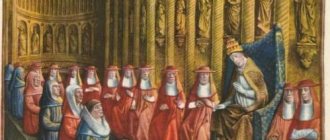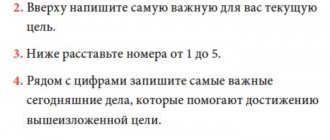Wisdom has existed at all times. If you believe the biblical stories, it existed even before humanity appeared. Solomon writes in parables on behalf of Wisdom:
I was born before the mountains were erected, before the hills, when He had not yet created the earth, nor the fields, nor the beginning grains of dust of the universe (Proverbs 8:25-26).
Wisdom is the artist of the world. And lovers of chemistry, biology or other science will confirm: the world is arranged wisely.
Wisdom is valued by people. She brings joy. The mind is no less revered. Sometimes it can be difficult to determine the difference between an intelligent person and a wise one. Confucius, Socrates and other thinkers of the past did not draw a clear line between the meanings of these words, but in the modern world there is such a tendency.
Three steps
Usually in the human mind the words “stupid”, “smart”, “wise” are placed in a certain order - according to the degree of their significance for a person. These are stages of development where stupidity takes last place and wisdom is valued above all else. The following statements are floating around the world: “Good grades don’t mean anything” or “Smart in school is stupid in life.” And indeed it is. An educated person is not necessarily smart, and an intelligent person is not necessarily wise.
Before finding the differences between intelligence and wisdom, it is worth determining how an intelligent person differs from a stupid one.
True Understanding
It turns out that a person perceives reality and comes to understand things with the help of two instruments of consciousness. With the help of the mind when it thinks and with the help of intuition, insight or true inner understanding coming from the core of our consciousness. The second tool really decides everything. It is more important, true and much more important than thinking. And it arises when, on the contrary, we stop thinking. Everyone has heard what intuition is. But few people understand what it is and how it really works.
When we think, we go through a chain of some knowledge, associations from our memory, looking for an answer to the question posed. When performing mental work, we act according to a certain algorithm, program. All computing technology and computers operate on this principle. But in reality this is not enough. Real understanding is not built on this.
Do you know why robots will never become alive and will never come close to truly thinking and understanding like humans. They do not have real awareness, that core of our being, which is often called the human soul. This is where intuition, insight, instant understanding and knowledge of all things reside. It is with this awareness that a person, first of all, interacts with the world around him, understands it, feels it. Yes, you can tell this is a sensory interaction with some kind of inner feeling. But it will be an unmistakable, correct, true understanding of reality. And for this you don’t need the mind.
When the mind turns off and intuition turns on, we understand better and make fewer mistakes. Knowledge seems to come from within. We feel confident that we are right and act without a shadow of a doubt. In difficult, stressful situations, intuition is the only thing that saves us. At such moments there is simply no time to think. If we think, we simply won’t make it in time, we’ll die, we’ll make mistakes. Understanding bypasses the mind; the mind does not work in such cases. “Don’t think, act,” said the ancient sages. In the east, during training in martial techniques, the teacher forced one to turn off the mind so that the body could act on its own based on internal knowledge.
All great discoveries were actually made through intuition, when the mind was no longer working on the question at hand. Remember how Mendeleev dreamed about the table of elements. Yes, you yourself can remember how the solution to a problem or some task usually came after you were distracted, doing something else, without thinking about it.
Any creativity, art, writing music, paintings is based not on the mind, but on higher manifestations of consciousness. Love, compassion, and understanding of a person without words live there. Any love impulse is done bypassing the mind.
All these facts indicate that, in addition to the mind, a person has a better, more important tool for understanding reality, which decides everything in our lives. Without it, a person turns into a soulless robot, looking at the world inadequately.
Indeed, someone who begins to develop his mind very strongly, forgetting about intuition and wisdom, literally becomes an inadequate person. A highly inflated mind intimidates intuition, leading to inadequacy. This is easy to see in any human activity, in any professional field.
Any profession, if you immerse yourself heavily in it and become a professional in your field, leads to a distortion of consciousness. For example, doctors, teachers or representatives of other professions have a certain way of looking at things. Bosses, for example, begin to look down on people. If a person is deeply immersed in science, he is usually a layman in everyday affairs. A military man does not understand things that an artist understands. A programmer, when dealing with programs, forces his mind to work in a similar way, completely intimidating his intuition, which is often reflected in everyday inadequacy. Of course, I'm not talking about everyone. But it is precisely the one who forgets about intuition, about wisdom, who falls into the power of the mind and comes to this state of affairs.
The whole point is that the mind cannot really and adequately reflect reality, no matter how strange it may sound. Reality is actually a very complex thing and to truly understand it, the mind alone is not enough. Something else is needed. The mind will only help, making its important contribution to this matter. Life is complex and illogical. The mind works only with logic.
Reality consists of a billion components, and it is impossible to grasp such a large volume with our minds at once, even if we look at a selected part of reality. Even the most powerful computer in the world will spend a long time going through all these options, trying to build some kind of picture from them. Our mind also works. It isolates some elements, following the commands of some program embedded in us. He goes through them, building his own small world out of the big reality. And people live in their own little world.
Intuition works differently. Articles about quantum physics said that there were two worlds. Dense decohered and thin recohered world. So the mind works with the decohered world. And intuition refers to subtle manifestations of consciousness.
When intuition turns on, it cognizes reality in its entirety at once. This is not a sequential sorting through of chains of information, as during thinking. This is volumetric, instantaneous cognition. It is unmistakable because it reflects reality or a part of reality with which we are now interacting in its entirety at once. And such knowledge is possible only through the highest recohered manifestations of consciousness. In a recohered world, an object, firstly, can be in several places at the same time. And secondly, there is a connection in which objects merge into one whole. During intuition, our consciousness simply merges with the object of reality that we are aware of. With such interaction, real cognition occurs, a correct, adequate view of things, bypassing thinking with the mind.
Comprehension with the mind alone leads to a one-sided, fragmented vision of the world. Our mind is contradictory, seeing only one side of the coin, rejecting the other, leading to duality. Submitting to the mind alone, one cannot behave wisely.
True common sense does not rest on the mind alone. Analytically, you can prove any absurdity, justify any atrocity, but all this will not reflect the true reality. That is why, being in the power of the mind, we make mistakes in life, changing our destiny for the worse. To be simply smart means to be a soulless robot, obeying only the programs programmed in your head.
Being wise does not mean just being smart.
Who's smart here?
Note. A smart person can be distinguished from a stupid person by certain signs.
- An intelligent person is able to change his point of view because he questions everything. He is open to gaining new knowledge and development. Whereas it is useless to argue with a stupid person.
- Smart people study a situation thoroughly before drawing conclusions.
- They have a good sense of humor. Their jokes are not superficial, but have a deep meaning.
- For smart people, a mistake is a failed attempt. They learn from their mistakes and try not to make the same mistakes.
- An intelligent person has an appropriate environment - he communicates with his peers, because this allows him to develop. Moreover, he communicates with a purpose without wasting his time.
As they say, it is better to be smart and stupid than to be stupid and smart. Having intelligence does not always save a person from stupidity, because it is human nature to sometimes be guided by emotions and feelings. And sometimes act out of habit. So a person can make mistakes simply because he is not used to “turning on” his mind when needed. Not everyone likes to think. You also need to learn this and train yourself in this.
However, besides the mind, there is something more mysterious, and that is wisdom.
Tips for women
Many beautiful women would dream of being born with a ready-made life experience, but this is impossible, so they have to move along the road of existence, studying its lessons and making mistakes on a pile of mistakes.
After all, the life values of maturity cannot be compared with the ideals of serene youth.
Below are tips on how to become a wise woman:
– learn to accept changes;
– live in the present moment;
– put aside laziness;
– do not impose your help on others, engage in solving your own problems;
– develop intuition;
– spend a sufficient amount of time in the “embraces of Morpheus”;
– understand that what is important in friends is not their quantity, but quality;
– ignore inappropriate people;
– give up envy by increasing self-esteem;
– gain an understanding that only by loving one’s own person can one realize the significance of mutual love;
– forget about the events of the past, there is only today;
– not to be afraid of adequate risk;
– constantly develop and engage in self-education;
– understand that the morning is still wiser than the evening;
- everything passes.
It is very important for a woman to gain wisdom, because the climate of family relationships with her beloved and the weather in the house depend on the daughters of Eve. After all, a woman in one person needs to be a reasonable adviser, a strict but gentle mentor, a faithful comrade, a gentle wife, a good housewife, a seductive heterosexual and a passionate lover to her husband.
That is why it is important for every young beauty to know how to become wise in relationships. First of all, it is necessary to understand and accept that ideals do not exist, but at the same time, each person has only his own “set” of qualities, his own advantages, advantageous features, and disadvantages. You need to learn to appreciate your loved one for the totality of his positive qualities and despite his shortcomings.
A wise woman does not live for the approval of others; she loves, respects and values her own personality, and therefore does not build relationships only on emotional outbursts. There is no need to waste your own time on marginalized people, abusers, married men. Living with an alcoholic or drug addict is not the duty of a good Samaritan, it is not supporting your beloved spouse, it is disrespect and dislike for yourself.
A partner must be worthy, and a wise woman must value her own time. If the chosen one is immature, lazy, or rude, then you should not waste a second of time on him.
A wise woman is aware of her own “role” in a marriage relationship, so she will never try on male functions. She also trusts her partner and does not stoop to total control. Marriage does not mean deprivation of freedom and obtaining exclusive rights to own each other. Any mature person needs his own free space. There is no need for your loved one to “clip his wings.” He will repay trust and freedom threefold with love and care for his wise wife.
Parable
Parables were written about everything. They answered no matter what questions. The question of how a wise person differs from a smart person is answered in parables extremely rarely, but it still happens. Below is an example.
Once upon a time Knowledge, Cunning and Intelligence met. Knowledge and Cunning began to argue which of them was more important. The mind stayed away in order to maintain good relations with them and subsequently use both. But the dispute flared up, and they persistently began to pester Umu so that he would make a judgment as to which of them was more important. The mind decided to shift this responsibility onto the Wise. Because he was an authority for him too. Wise was Uma's uncle, although they did not communicate often. And so the three of them went to the Wise One and knocked on the door. His wife, Conscience, revealed it to them. It turned out that the Wise One was not at home. Conscience told me that this does not happen often, and few now consult with the Wise. When Intelligence, Knowledge and Cunning returned, Intelligence told them: “You see, no one needs the Wise One with his truth, so be happy with what you have.”
From the parable it is clear that a smart person has a lot of knowledge and cunning. Although a person who knows a lot is not always smart. Perhaps the person just has a good memory. Wisdom is close to conscience and is the head of everything. The parable clearly shows the difference between a wise person and a smart person. The first is necessarily associated with good (he helps people, his wife is Conscience), the second is not always (his friends are Cunning and Knowledge, he acts in such a way as to benefit).
Types of intelligence
There are two types of intelligence - verbal and non-verbal. Most often, a person develops a specific type. However, it happens that both types develop in parallel. Then the person’s personality will be completely harmonious.
Verbal intelligence . This type of intelligence refers to a person’s ability to think while speaking. He can think through further steps in the conversation without being distracted from the dialogue;
Nonverbal intelligence is the ability to skillfully operate with images in one’s own mind. This type of thinking is possessed mainly by creative individuals.
A person, in the course of his life, develops both types of thinking. It all depends on age. For example, the level of development of verbal thinking in a child will be lower than in an adult. However, the child has more developed non-verbal thinking.
The meaning of the word "wisdom"
Wisdom cannot be precisely defined. It is often associated with experience and with old age, with emotional balance and the ability to make decisions in difficult situations so that everyone is happy.
Wisdom is a certain balance between strength and weakness, confidence and doubt, severity and gentleness, one’s own interests and the interests of others. She is harmonious.
No one will call an evil smart person wise. Perhaps they will call him cunning. Perhaps a genius, but not wise. Because the adjective “wise” is exclusively positive. So what is the difference between a wise person and an intelligent person? Below are the main signs.
In Dahl's dictionary
based on goodness and truth; righteous, combining love and truth; eminently intelligent and well-intentioned. | Intricate, difficult to understand, tricky; abbreviation wise, retains the first meaning, and muder - the second, meaning sometimes | intricate, whimsical. Unwise, simple, understandable; not very valuable, not very excellent. Unwise people put together a wise proverb. People are not wise until they are sixty. The matter is tricky, difficult, tricky. It’s not a wise thing to thresh, no wonder. Not a wise thing, not very pretentious. Not a wise groom, average. Gifts blind even the wise. If you please a drunk, you will become a muder. Wise Germans. Kamyshin residents! A wise man hears in half a word. Wisely adv. reasonable, efficient, right and useful; wise, tricky, incomprehensible, very difficult. Wise, -shenek, very wise. Wise cf. eagle curdled milk soup with buckwheat flour. Wisdom property of the wise: wisdom, the combination of truth and goodness, the highest truth, the fusion of love and truth, the highest state of mental and moral perfection; | philosophy. | Cunning, art, skill; intricacy or difficulty. Divine wisdom, providence, providence. Human wisdom, cleverness, cleverness, delusions. There is no great wisdom, no difficulty, no wonder to do. A person's misfortunes teach wisdom. All wisdom is from God. To become wise, to become wise, to become wiser and kinder, drawing the highest truths from learning and experience. Tenacious, wise. Without God you cannot become wiser. He has become too wise: his mind has gone beyond his mind. No matter how poor they become, they become wiser (or wiser). | Wisdom, plant Sisymbrium Sophia. To be wise or wise; perm. to be wise; to play tricks with something or on someone, to be cunning, to come up with something unusual, to do one’s own self-confidently; | to play smart, to push someone around, to fool someone. Stop being clever, live like a human being. Why are you still trying to make sense of him? I'm not a fool for you to be wise to me. What are they doing there together? | Wise, south. sometimes to be foolish, to be complacent, to be stubborn. The girl is so wise, there’s no way around her! Thumb. No matter how wise you are, you can’t cut off the ends. No matter how wise you are, you can’t outdo God’s will (a peasant’s response to innovations). If you're going to feast, don't be wise. Look, trade, and then don’t be wiser! -sya, to be wise, wise; manage. He made up a thing, he made it up. I've worked my ass off. He's up to no good again! He became wise and became a fool. I learned a lot, but didn’t finish anything. Think about this matter, what to do. If you overdo it, you'll ruin it. We have been wise for a long time, without a path. What made him crazy? I screwed up the thing. How did you manage to do this? The Lord makes the simple ones wise. Wiseness cf. inappropriate, cunning cleverness, false wise judgment. | Pushing someone around, being clever. To philosophize about something, to speculate, to reason, to philosophize; to delve into abstract judgments, to become courageous or to brainstorm. -sya, impersonal. You never know what to think about. Wise, related to wisdom, originating from it. Wise, intricate, wonderful, incomprehensible and difficult. It’s written wisely, you won’t understand. A wise thing, intricate. It’s not a big thing, but it’s a bit wise (a bit wasteful). -that's it. the property of being wise; intricacy, sophistication. Wise man, wise man m. -nitsa f. whoever is wise, becomes wise. Mudrovka, wise woman. Sage m. philosopher, wise husband; a person who, through study, reflection and experience, has reached the consciousness of the highest everyday and spiritual truths. Simplicity is enough for every wise man. Need is more cunning (or wiser) than the sage. Sages, belonging to him; -tsky, relating to him. Wisdom cf. the state and science of the sage. Tricky, intricate, strange, incomprehensible, difficult, complex, confusing, unsolved; cunning, skillful. Wisely created. A tricky thing, a mill. No wonder in Kudrino, no wonder from Kudrin, Moscow. Blind people are wise. The little man is not wise, but the kitty is vigorous. It's surprising that it's cooked on ice. The need is tricky: the need is full of inventions. You are wise in the free world - but will you somehow die? He is wise who has a strong pocket (purse). It was stolen in a clever way, but it will be found. It’s no wonder to cut off the head, it’s no wonder to put it on. The city body is wiser than the village sexton. -new, the same, to a lesser extent. Wisdom, -vatness. state, property by value. adj. The newest music is famous for its ingenuity. To become wiser, to become wiser: to grow wiser, to achieve something through experience and science. Wise woman novg. yarosl. cunning; seduction, deception or thing; crafty thing, toy, etc. | Novg.-skull. about. dressed up, okrutnik. Wise men talk about Christmastide. Love of wisdom cf. wisdom, the inclination towards wisdom and philosophy itself. -loving, -loving, related to this. -lyubets m. -bitsa w. wise-loving person. We love the wise ruler. Wise man. A wise-mouthed man, a wise-speaking preacher. Wise and brave warrior.
How to acquire wisdom
Almost every person sometimes shows wisdom. If you ask a person to remember where he acted wisely, he will definitely find such a situation. And what happens sometimes can happen more often over time.
To learn to balance between severity and gentleness, your own interests and those of others, to look at the situation from different sides, you can develop the habit of looking at yourself as if from above (from space or from heaven), thus abstracting from your feelings. You can also think of yourself in the third person, as some kind of Dasha or some kind of Petya. This works because it is easier for a person to judge wisely about someone else's life than about his own.
The main thing is to move in this direction, then both wisdom and love will come. And life may become easier.
Wise people develop using crisis.
It often happens that negative experiences have the best effect on a person's wisdom. This is why people who have experienced psychological trauma seem especially wise. Research confirms this: people who endure adversity become stronger as a result.
Most of us have had some negative experience in life that has forced us to rethink important things. However, we do not have to experience a crisis to become wise.
We can improve our wisdom by learning from events every day. We can choose how to respond to negative situations, and making the right choices in a difficult situation can help us become wiser.
In Vasmer Max's dictionary
wise wise, mudra, wisely, ukr. wise, other Russian wise, old-slav madr φρόνιμος, σοφός (Supr.), Bulgarian. Madar, Serbohorv. mudar, mudra, adv. wisely, Slovenian. módǝr, Czech. moudrý, slvts. múdry, Polish mądry, v.-luzh., n.-luzh. mudry. Related Lit. mandrùs “cheerful, proud, perky”, lt. muôdrs “vigorous, lively”, Old Indian. mēdhā́ f. “wisdom, reason, understanding, thought”, mandhātár- m. “pious”, Avest. mązdra- “wise, intelligent”, mąz-dā-, maz-dā- “keep in memory” mǝn dadē “remember”, d.-v.-n. muntar “zealous, dexterous, lively, vigorous”, Goth. mundōn sis “look at the ch.-l.”, Old Norse. munda “to mark”, Greek. μανθάνω, aor. ἔμαθον “learning, noticing, understanding”, Alb. mund “I can, I conquer” (see Jocles (Stud. 58), Barich (Albrum. Stud. I, 105) against G. Mayer (Alb. Wb. 291)); see I. Schmidt, Vok. I, 170; Trautman, BSW 168 et seq.; Endzelin, SBE 198; Brugman. Grdr. 2, 1, 378; Specht, KZ 63, 92 et seq.; Frenkel, ZfslPh 20, 74. Further connected with I.-E. *men- (Meye, De indoeur. radice *men- 41).











